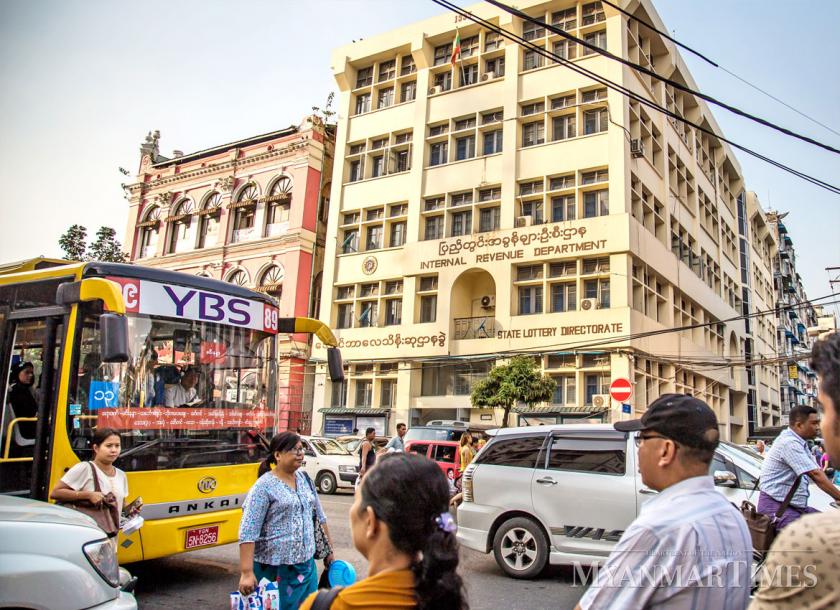Myanmar businesses urged the government for lower taxes to alleviate pressure from the rising dollar exchange rate and slowing economy in recent months
17 Sep 2018
Myanmar businesses are urging the government to lower the country’s tax rates to alleviate pressure from the rising dollar exchange rate and slowdown in demand in recent months.
According to the quarterly Business Sentiment Survey by the Union of Myanmar Federation Chamber of Commerce and Industry (UMFCCI) released last month, Myanmar’s high taxation rates are among the top reasons for the weakening economy.
The survey, which revealed a 25 percent year-on-year drop in overall business confidence, also showed that three out of the five reasons for the lack of confidence in economic growth were related to taxation.
During a meeting between Daw Aung San Suu Kyi in late August, business leaders, including UMFCCI chair U Zaw Min Win and U Shein Win, chair of the Myanmar Construction Entrepreneurs Association (MCEA), urged the State Counsellor to reduce Myanmar’s existing tax and interest rates to draw more foreign direct investments (FDI) to the country.
The Directorate of Investment and Company Administration (DICA) is expecting US$5.8 billion in FDI in 2018-19, which is unchanged from the previous 2017-18 year ended March 31, during which Myanmar received $5.7 billion in FDI for 222 projects. In comparison, the country received $6.6 billion for 135 investments in 2016-17
Lower tax
This is not the first time the business community is calling for a decrease in tax rates, which inhibits operations, especially for new companies.
“When we start running a business, we have to invest in capital assets. But we also have to pay 30pc in tax for capital expenditure despite the fact that we haven’t even started doing business. So, we suggest reducing this tax to 5pc for the first 1-2 years of starting a business,” said U Maung Weit, a businessman present during the meeting.
Many were also disappointed when a tax amnesty regulation was not included in the official legislation passed on March 20. According to 2018 Union Tax Law, all undisclosed sources of income will be liable to a 30pc tax. Under the new law, reductions were granted only for special commodities tax and withholding tax.
If it had been approved, the amnesty would have enabled resident citizens and non-resident citizens to pay as little as 3pc for income on which tax was previously unpaid or underpaid.
According to the Joint Public Accounts Committee, the amnesty was omitted because it would allow those who avoided paying tax in the past to pay lower tax compared to those who had abided by the law. It would also permit them to escape punishment for tax evasion.
But U Myo Myint, CEO of MKT Construction, said “people in possession of black money will not care about paying tax. It is the people who are actually struggling and working to earn money that will be forced to pay taxes. Lowering taxes will be a positive move which will improve the economy as a whole.”
At the meeting, Daw Aung San Suu Kyi explained that the government needs to consider every aspect and consequence of granting tax amnesty. She added that her government would continue to study and discuss potential tax reductions but said a decisive answer on whether that would take place is currently still elusive.
For now, tax collection data from the Joint Public Accounts Committee shows that tax revenues have been increasing annually starting from 2011-12. The Asia Foundation also found that over 70pc of the people it surveyed in a 2018 study still regard income, commercial and property taxes in Myanmar to be fair.
Still, Myanmar’s tax receipts make up just around 6pc to 7pc of GDP, which is the lowest in ASEAN, where tax receipts comprise 10pc -20pc of GDP, the survey revealed. For the government, which relies heavily on tax revenues for spending, structural and sustainable measures such as controlling illegal border trade must be taken for the country to stay viable over the longer term.
(The Myanmar Times: https://www.mmtimes.com/news/businesses-call-lower-taxes-amid-slowing-economy.html )











